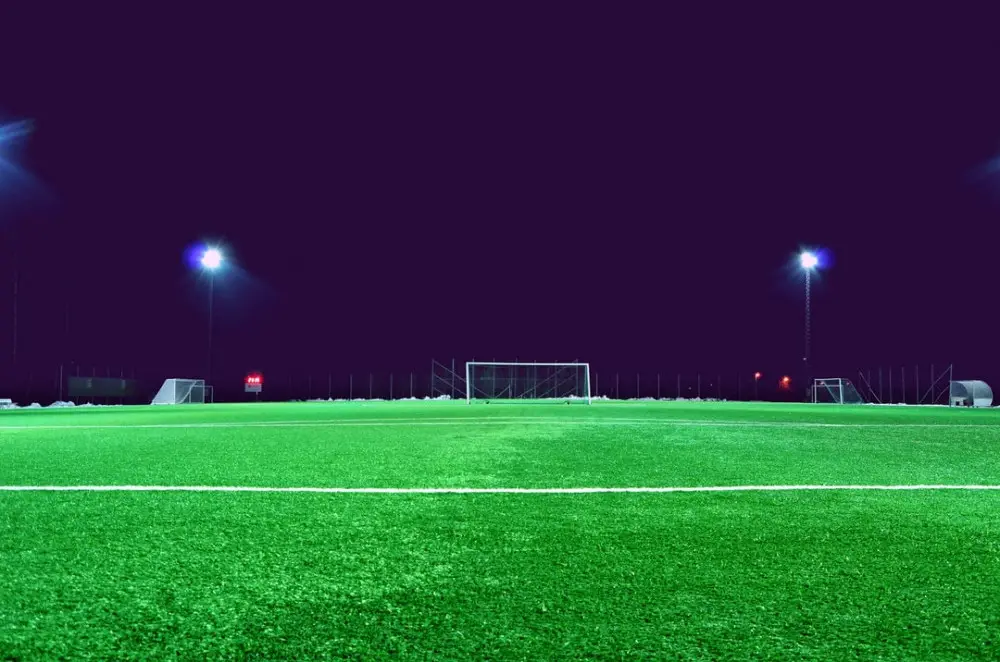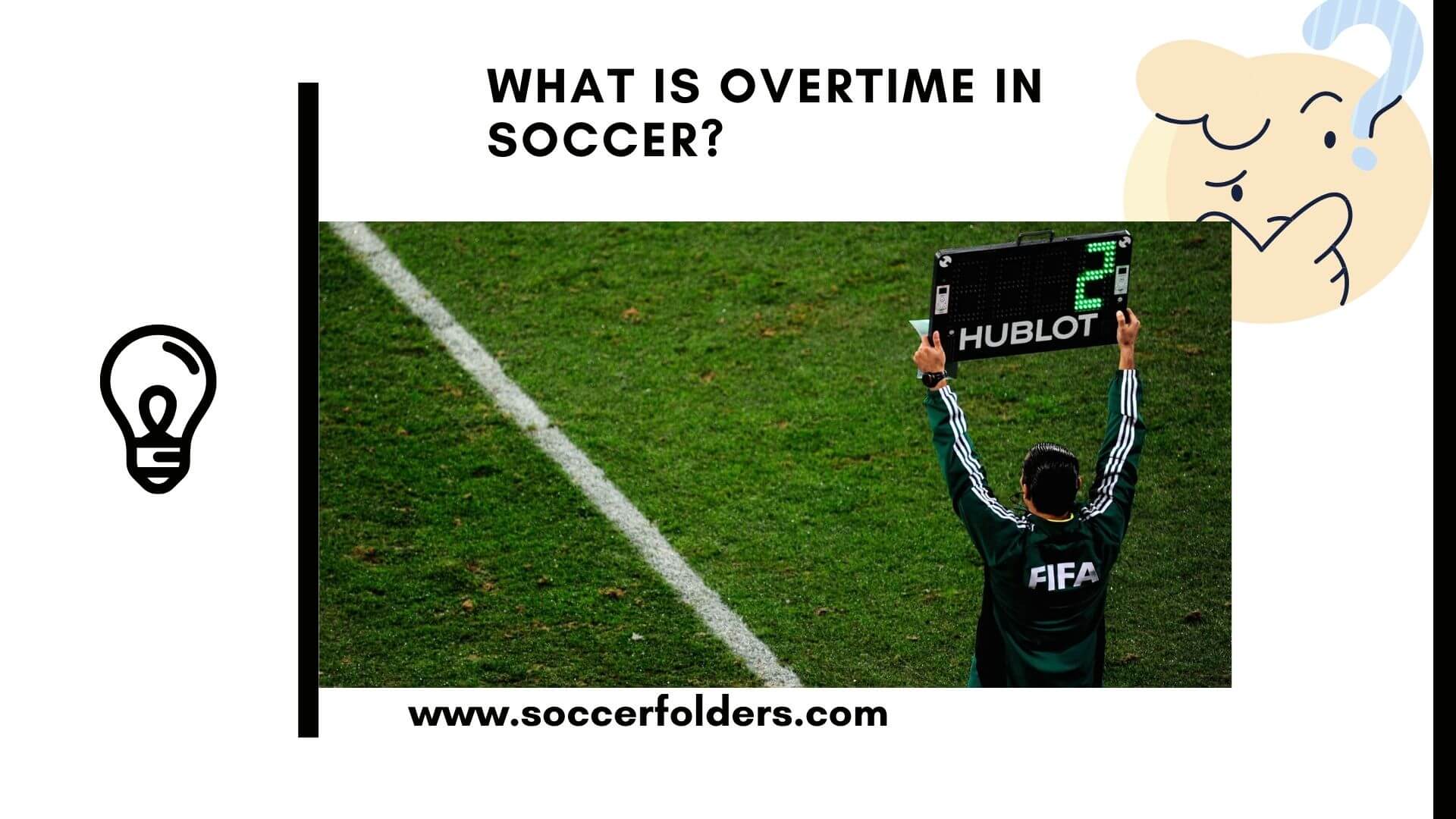What is overtime in soccer?
Before answering that question, keep in mind that Soccer is a game played by two teams composed of eleven players each, and each game lasts for 90 minutes. However, what happens when there is no winner during the 90 first minutes of the game? Overtime?
Does soccer have overtime in the first place? The answer is yes.
But, what is it, how does it work and how long does it last?
Get comfy and grab a snack because you are going to find out everything there is to know about overtime in soccer.
Quick Navigation
- What is overtime in soccer?
- How long is overtime in soccer?
- Why do we have overtime?
- Soccer extra time vs overtime
- Which soccer competitions use an overtime?
- Soccer overtime rules
- What is a golden goal period?
- How long is the break between full and extra time in soccer?
- Final Thoughts
What Is Overtime In Soccer?
Overtime, also known as extra time occurs when there is no winner at the end of the regulation time. In this case, there will be an additional 30 minutes added to the game. For example, if the final result at the end of the 90 minutes of a game is a draw, both teams are going to play 30 minutes more to try to score and win the game.

Note that overtime only takes place during the knockout stage of a competition, when a winner necessarily needs to be decided.
For example, in UEFA Champions League or European Cup, there is overtime only during the knock out stage(quarter-final, semi-final, etc).
However, there are some exceptions. In the national league(Premier League, Liga, Ligue 1, Bundesliga, etc), there is no overtime. If the final result of a game is a draw, both teams will go home on this result and wait for the next game against a different opponent.
How Long Is Overtime In Soccer?
How long is soccer overtime? Well, the answer is that overtime lasts for 30 minutes in all major soccer competitions that adopted this system. During the overtime, both teams are going to play for 15 minutes before taking a 1-2 minutes break and finally continue with the last 15 minutes. So, there is a first and second half during the overtime period.
Why Do We Have Overtime?
The overtime system, just like various different sports, has been adopted to give both teams a chance to win the game.
Overtime helps determine an outcome when there is no winner during the first 90 minutes.
The idea behind the adoption of this system was to encourage more attacking play.
Unfortunately, today many teams use the overtime period only to prevent the opposition from scoring goals. All they do is defend and wait for the penalty shootout.
Also read: Why do soccer/football players take their medals off?
Soccer Extra Time vs Overtime
Long story short, Overtime and Extra time mean the same thing. In soccer, extra time is also called overtime.
If you live in the USA or in North America in general, it’s likely that you use the word “Overtime”. This is because many North American sports use an overtime period if needed, and these sports call it “Overtime”.
So, why would Americans call it a different name? They avoided any confusion. This keeps the terminology in line with all the sports played in North America.
However, in Europe, Africa and Asia, this period in soccer is called “Extra time” and nothing else.
Which Soccer Competitions Use An Overtime?
Overtime is used universally by both men’s and women’s soccer. It is used in knock-out stages of the FIFA World Cup, in the knock-out stages of the European Cup, knock-out of the Champions League after the second leg, you’ll also see it in the playoff stages of the MLS, African Cup of Nations, and in many other soccer competitions.
In Copa America for instance, the overtime only takes place during the final.
Soccer Overtime Rules, Is There Any?
People tend to think there are specific rules during the overtime period. The truth is that there is no additional rule taking place during overtime. There is nothing players can do during the 90 first minutes that they can’t during overtime.
The only difference is the overtime is shorter with only a 1-minute break.
What Is A Golden Goal Period?
It’s likely that you heard about the golden goal period. But what is it? Or what was it?
Because the truth is the golden goal is no longer taking place in soccer. It was abandoned in 2003. Since then, no major soccer competition uses this rule.
The golden goal period was taking place during the overtime period. It was adopted to encourage more attacking play. During the overtime, the team that could manage to score a goal was declared the winner before the end of the game.
For example, during the Euro 2000 final between France and Italy, the final result at the end of the 90 minutes was 1-1. Then, there was an overtime period during which, David Trezeguet managed to score the golden goal and France won 2-1.
That goal was scored right before half-time in overtime.
I think this system was great because it was making the overtime period more exciting. Both teams had to do their best to score and prevent the opposition from scoring and therefore, avoid the penalty shootout.
This system was also great because scoring an early goal during the overtime(Like Trezeguet) would prevent your team from playing more minutes. During the overtime, players are exhausted and want the game to end as soon as possible.
Plus, the golden goal rule is a system that supporters would really enjoy.
By the way, let us know in the comment section below if you think the overtime period would be more interesting with a golden goal.
How Long Is The Break Between Full And Extra Time In Soccer?
The break between full and extra time last for 5 minutes in soccer. During that period, players stay on the pitch to stretch, receive a massage and listen to the last words of the coach. They do not head to the dressing room.
Final Thoughts
Let’s recap what overtime is, how it works, and when it takes place.
Overtime/Extra time takes place when the game ends in a tie but a winner needs to be decided. In this case, there is an extra 30 minutes added divided into two halves of 15 minutes.
Overtime is great because it allows both teams to do what they haven’t done during the regulation time.
If there is still no winner at the end of the extra time, a penalty shootout will take place.
I hope you have gained value from this article and you now have a better idea about overtime in soccer.
If you have any questions, do not hesitate to leave them in the comment section below.


There is no better and easier way to detail what overtime is in soccer. You have perfectly broken it down… I am such a HUGE soccer fan. My favourite club is Manchester United! I know we are having a difficult time at the moment with so many losses but I am sure all is going to be ok soon.
Hi, Daniel. Yeah, I feel you and know what you can feel at the moment being a Man United fan. They will do well with a new manager.
Hi, Warren. I am from Italy and we call it extra time over here like everywhere in Europe. I heard a lot about the word “overtime” but I had no idea that it means the same thing. So, thanks for clarifying that for me.
I’m still kinda frustrated that they have abolished the golden goal rule. I mean, it was much fun for us fans to watch an extra time and experience that joy when your favourite team scores the winning goal.
Hi, Paolo. I’m glad the article was helpful for you.
As for the golden goal, I agree with you. It is very exciting to watch an overtime and experience that golden goal. There is a reason it was called a golden goal, imagine the feeling.
Have a nice one.